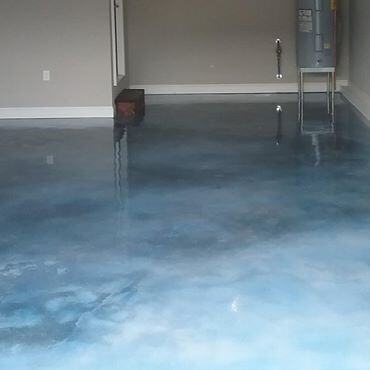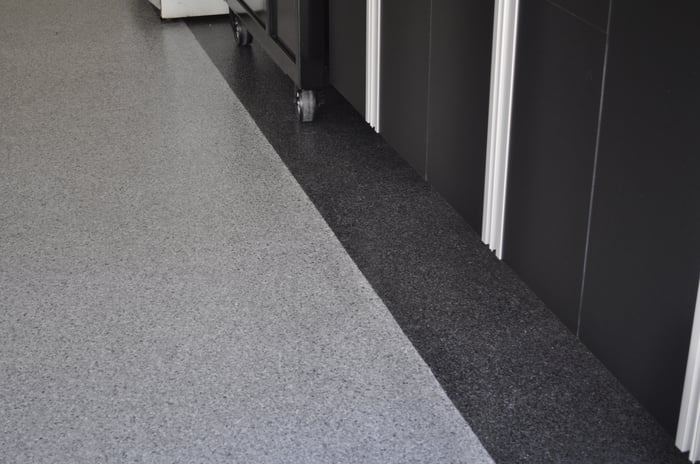If you have a concrete floor, you know how important it is to protect and maintain it. From residential garages to commercial warehouses, concrete floors need to be sealed and maintained against moisture, dirt, stains, and other wear-and-tear that can result in cracks and costly repairs.
While there are many different sealers available on the market today, we will discuss the best concrete sealers here so that you have all the information necessary to make an educated decision about which to choose for your concrete floor. From epoxy concrete sealers to polyurethane sealers, here are the top concrete floor sealers to consider.
What is Concrete Floor Sealing and Why Does it Matter?
Before anything else, let us have a quick rundown of what concrete floor sealing is and why it matters. Concrete floor sealing is a process used to protect and preserve the condition of concrete surfaces. This helps to provide durability and longevity from any damaging elements, such as wear and tear of foot traffic, UV light, weathering due to temperature changes, and deterioration from chemical spills and cleaning agents.
Typically, a concrete driveway or patio will need to be sealed about every two years, but this may vary depending on the climate and amount of foot traffic. It is important to keep in mind that concrete floors are porous and vulnerable to water damage, so it is crucial to apply a sealer for extra protection.
Since sealing blocks out moisture that can seep into the concrete pours or crevices of floors, it also prevents the growth of molds and mildews that can cause health issues. Therefore, a good concrete sealer contributes towards a healthier environment and can prolong the life of your concrete floor.
Apart from this, investing in routine maintenance and sealing your concrete floor can also increase its aesthetic appeal. This is because sealers come in various shades, so you are able to pick a color that matches the decor of your home or workplace.
In essence, concrete floor sealers are customarily used to protect indoor or outdoor concrete surfaces , as well as improve their looks in the long run.

Types of Concrete Sealers
Concrete sealers can be classified based on their application materials and each offers unique characteristics for every concrete surface. Choosing concrete sealers depending on your project needs is important.
Here are the types of concrete sealers and a basic overview of their function and benefits.
Penetrating Concrete Sealers
Penetrating concrete sealers are designed to penetrate the surface to protect it from within. Meaning to say, it creates an invisible barrier that blocks out moisture and dirt from entering the pores of the concrete slab. These sealers are also highly resistant to chemicals and stains, making them ideal for high traffic areas. However, this type of sealer is not designed to change the appearance of your concrete and will not provide any glossy finish.
Water-based Acrylic Sealers
Water-based sealers are the most popular type of sealer on the market. They are easy to apply, they dry quickly, and provide a durable finish. Water-based sealers can be used on a variety of surfaces, including wood, concrete, brick, and stone. As for concrete garage floors and driveways, they can provide a matte finish that will protect the surface from concrete staining and weathering.
Solvent-based Sealers
Solvent-based sealers provide a glossy finish that can enhance the visual appearance of unsealed concrete surfaces. This type of concrete sealer is suitable for patios, driveways, and all other outdoor surfaces exposed to sunlight and different weather conditions. It also effectively blocks out moisture and dirt from entering the concrete, thus providing a durable coating that will last for many years.
Oil-based Sealers
Oil-based concrete sealers are another popular type of sealer. They provide a more durable finish than water-based sealers, and they also effectively protect the surface from staining, weathering, and UV damage. The downside is that oil-based sealers can be more difficult to apply than water-based sealers and take longer to dry.
Acrylic Concrete Sealers
An acrylic concrete sealer is a type of water-based sealer that is made from acrylic resins. It provides a matte finish that is resistant to moisture, dirt, and staining, making it a great choice for all types of indoor and outdoor surfaces. Acrylic sealers are typically more expensive than other types of sealers but they offer superior performance.

Polyurethane Sealers
A polyurethane concrete sealer is a great choice for driveways, garages, and outdoor surfaces that are exposed to extreme weather conditions. A polyurethane sealer is a type of oil-based sealer that is made from polyurethane resin. It provides a glossy finish that is highly resistant to staining, UV damage, and weathering. However, polyurethane sealers can be more difficult to apply than other types of sealers and take longer to dry.

Epoxy Sealers
Epoxy sealers create a high-end, long lasting protective barrier on concrete surfaces and are also highly resistant to abrasion. In addition, they offer superior water repellency. You can get them in clear or pigmented options.
Epoxies also have much higher durability than acrylics; their unique water-based composition ensures firm adhesion to concrete with an alluringly transparent surface which will not trap moisture underneath it. For this reason, epoxies are most likely the best option for concrete countertops or any food preparation areas.
Choosing the Optimal Concrete Sealer
When it comes to selecting a concrete sealer for your exterior concrete surfaces, for sure, there are a variety of options available. Nonetheless, the best sealer usually depends on the surface you are working on, the application, and the finish that you want as different topical sealers provide different levels of protection and are suited to various conditions.
For example, indoor concrete surfaces such as countertops or floors should be sealed using an acrylic sealer, while outdoor surfaces such as driveways and patios should be sealed with a polyurethane or epoxy sealer. In the end, you should always select a product that is specifically designed for the surface and environment.
Tips for Choosing the Best Concrete Sealer for Your Needs
When selecting a concrete sealer, there are several things to consider in order to ensure you choose the best concrete sealer for your needs. Consider factors such as climate, the intensity of exposure, and other elements related to the environment in which the sealer will be applied.
In addition, you should also take into account the cost of the sealer and its application, as well as its durability and aesthetic value. It is important to remember that the best sealer will be dependent on your specific needs, so it is important to take the time to research and compare products before making a purchase.
Consider your climate
When choosing a concrete sealer, you need to consider your climate. If you live in an area with harsh winters, you’ll need a sealer that can withstand freezing temperatures. On the contrary, if you live in a hot, humid climate, you’ll need a sealer that can resist mold and mildew.

Consider your budget
Concrete sealers range in price from around $20 to $200 per gallon, so it’s important to consider your budget when choosing a sealer. In general, higher-quality sealers will cost more, but they will also last longer and provide better protection for your concrete.
Compare prices
Once you've decided on a few potential concrete sealers and have considered your budget, it's time to compare prices. Be sure to compare the cost of the concrete sealer itself as well as any additional costs, such as shipping and handling charges.
Read concrete sealer reviews
Once you've narrowed down your options, it's important to read reviews from other consumers as well as this will help you to get a better idea of which concrete sealers are the most popular and which ones tend to have the most positive feedback. You can find reviews online or in home improvement magazines.
Read the label carefully
When you’re ready to purchase a concrete sealer, be sure to read the label carefully. The label should provide information on the coverage area, drying time, and recommended uses for the product.
Follow the manufacturer’s instructions
Once you’ve selected a concrete sealer, be sure to follow the manufacturer’s instructions for application and curing times. Most sealers require two coats for optimal protection, so be sure to allow enough time for each coat to dry completely before applying the next one.
Apply the sealer in cool weather
If possible, try to apply the concrete sealer when the weather is cool and there is little to no wind. Hot weather can cause the sealer to evaporate too quickly, while wind can blow dust and debris onto the wet surface of the concrete.
Conclusion
Choosing the right concrete sealer for your project can be a daunting task, especially when each sealer comes with its own set of features and benefits. But with the right research, you can make an informed decision that will provide your concrete with long-lasting protection and durability. Just remember to consider your climate, budget, and application instructions before making a purchase. With the right concrete sealer, you can keep your concrete surfaces looking good for years to come.

6 comments